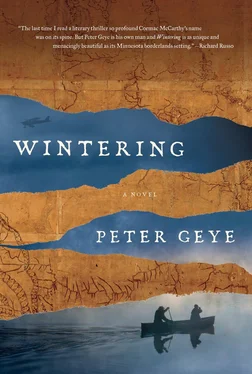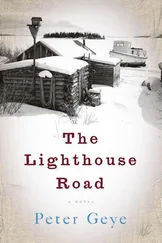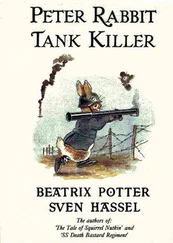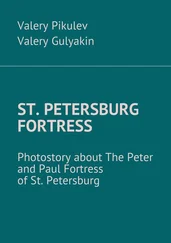“This’ll be more work than the lower falls,” Harry said.
“I’ve been up these falls a hundred times.”
“With eighty pounds on your back?” Harry surveyed the options. “You want to take the long way around or split the chutes?”
“It’ll take half an hour to go around.”
“In the scheme of things, that won’t amount to much.” Harry looked up at the falls again. “One misstep and our adventure’s over.”
“I know it,” Gus said.
“And our lives.” Harry studied the clearing in the woods and the bottom of the trail that led up and around the falls. That would have been the prudent route, and they both knew it. “But we’re fresh, eh?”
Harry dug his paddle into the current and steered for the slick talus between the pool at the bottom of the chute and the maw. Gus fell in line, and by the time they’d nosed their canoes onto the shelf they were both damp with brume. Harry stepped out, pulled his boat out of the water, and heaved a Duluth pack over his shoulders, then turned back to Gus. “Stay to the right, bud.”
“Like I need to be told that?”
Harry scrabbled up the steep rock steps, using his hands and arms as much as his legs. Gus followed behind, his face at his father’s bootheels. Midway up at the Devil’s Maw, Gus paused and gaped into the precipice, feeling its cold, sharp exhalation, a breeze with a metallic tang. Suddenly dizzied, he gripped the rocks and pulled himself up and away. The footing was of course chancy and the water hauling over the falls thunderous, so loud that he couldn’t hear his own heavy breathing. But as they neared the top, the water quieted beneath them and he heard his father singing.
At first he mistook it for some alien sound coming off the water or out of the earth, some whistling from the treetops up on the ridges. But the longer they climbed the more certain Harry’s voice became. Deep and loud, as if he’d just found it along their route. Words of a song Gus had never heard, sung in a language he’d spent four years of high school learning and only one short summer forgetting: “À la claire fontaine m’en allant promener, / J’ai trouvé l’eau si belle que je m’y suis baigné. / Il y a longtemps que je t’aime, / Jamais je ne t’oublierai….”
—
They made camp on the shore of Borealis Lake that evening. They’d been ten hours paddling up the Burnt Wood with only those few short portages and a half hour for lunch ashore. When Harry unfolded himself from his canoe he was stiff as a jackknife. He cracked his back slowly and turned to Gus. “Not a bad first day’s paddle, eh?”
“If they’re all that easy, I’ll be disappointed,” Gus said. He meant it, too.
Harry gave him a sly smile. “Oh, you won’t be disappointed.” He cracked his back again. “How was your boat?”
Gus stroked the smooth cedar gunwale. “Stalwart,” he said, because that had been Harry’s mantra and prediction for all the months they’d spent building them.
“Stalwart. Indeed, sonny boy.”
He hadn’t seen his father so at peace for some time and hadn’t expected to now, given how many years it had been since he’d last been in a camp anywhere. Gus knew something was off, because that kind of easiness had so rarely been part of Harry’s constitution. It made Gus nervous. “We’d better tend to our camp,” he said.
“Righto.”
As would become their custom, Gus got a line in the water while Harry gathered firewood and started a pot of rice. Two pike fillets were boiled and salted before the rice was done, and they ate off tin plates, the sun setting over the trees behind them. They were silent, as they’d been most of the day, and when they finished eating, Gus scrubbed the pots and plates and stoked the fire before he took his mandolin from its case.
While he fingered a few chords into that beautiful gloaming, his father pulled a length of birchwood from the pile beside the fire and cut it to a length of a foot and a half. The hatchet — like the canoes and sleeping sacks and paddles and damn near half their outfit — was something Harry had made. In a furnace he’d built, he melted the old Buda motor from his own father’s retired fishing boat. He cast the hatchets and knives in clay molds, hammered the edges on an anvil, honed them with files, then his belt sander, and finally with emery paper and the sharpening stone. He’d stacked leather for the grips and cut moose hide for the sheaths, and now here he was, on the shore of Borealis Lake, trimming a birch stick by the fire.
He worked, as he always did, as though he were completely free of thought, his hands obeying instinct rather than the instructions of his own mind. Before Gus finished the first song, he’d already cut all the bark from the birch.
Gus stopped playing. “What are you making there?”
Harry sighted the birch up and down, looked across the fire, and said, “Play me another ditty, would you?”
Gus strummed the mandolin only once before repeating the question.
“I guess,” Harry said, “it’s going to be a calendar. We can notch all our days on it.” He nodded, satisfied, and said, “Now play me that song again, eh?”
So Gus did. He played until the stars jumped out.
—
For two days they paddled against the Burnt Wood’s weakening current, portaging the saults, making lunches over fires on the river’s edge, pitching their canvas each night in clearings. Already each was growing used to the silence of the other’s company. And to the strange beckonings from the wilderness.
Here the river was narrowing even as the trees on shore grew more distant. On either side they could touch the tall and browning cattails with the blades of their paddles, the boggy water beyond seeping toward the jack pines ashore. Every thirty strokes or so they came upon matted shoreline where moose had come to forage.
As they paddled Harry sang full-voiced: “Le fils du roi s’en va chassant, / En roulant ma boule. / Avec son grand fusil d’argent, rouli, — roulant, ma boule roulant…”
“What’s with the love songs?” Gus said.
“They’re chansons. Voyageur songs.”
“Why holler about it?”
“You want to surprise some bull along this tight stretch of river? With nowhere to turn? They’re hornier than you are right now. We come on one unannounced and you’ll have an antler up your ass faster than you could squeal about it.” Harry smiled and started singing again. They paddled on.
An hour later, the river and muskeg funneled into a narrow watercourse no more than two feet deep and six feet wide. Their paddles struck the rocky riverbed, sending sharp reverberations into their hands. After a few minutes, Harry stepped from his canoe and unpacked a length of rope. Gus did as Harry did. They knotted their lines to the bows, shouldered and tied off the line, and started dragging their boats single-file up what was left of the river. When the trees closed above them, they had to bend and then crawl through the canopy of boughs and branches.
“I hope this means we’re near Burnt Wood Lake,” Harry said. “We ought to be.”
The river was frigid and already Gus’s hands were numb. “Were you expecting this?”
“I wasn’t expecting anything. I will not.” Harry looked over his shoulder, down the starboard side of his canoe, and fixed Gus with his stare. He remembered that stare, Gus did. All these years later, he recognized it as a warning. For Harry knew, sure as Gus did himself, that asking if he’d been anticipating a tangle of trees and shallow water was his son’s first complaint. And them only three days into a trip that would last months.
Gus had not questioned their planning much, but he had wondered — on the night before they departed — why they didn’t just drive up to the public access on Burnt Wood Lake and put in there. It would have taken less than an hour from their front door, saved them a lot of unnecessary effort, and spared them this cloying mess of trees.
Читать дальше












